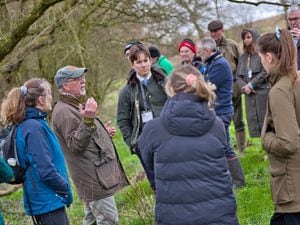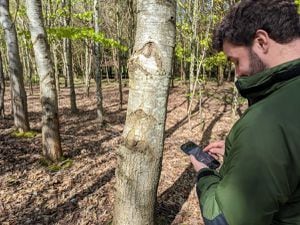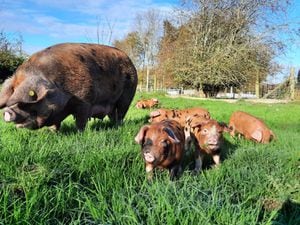Energy plant's plans for Shropshire countryside
An energy plant with the capacity to power up to 2,000 homes could be built at a farm in the Shropshire countryside.

HLW Farms wants to build the anaerobic digester to process chicken litter as well as crops grown on site to make enough electricity for the farming business to become self-sufficient. It is believed the plant could generate up to 800kW of electricity per hour, and energy not used on the farm would be fed into the local grid.
The plant would be built alongside four chicken sheds on land east of Hollins Lane in Woodseaves, near Market Drayton, if plans are approved.
It would process about 14,000 tonnes of crops and manure over a year including 3,200 tonnes of chicken litter and 6,000 tonnes of maize.
But the idea of such an energy plant has proved controversial in north Shropshire after Grocontinental submitted plans to build a similar plant opposite their site in Whitchurch.
A petition against the plans gained more than 1,000 signatures from people who feared the plant would generate bad smells across the town and pollute the countryside. But Shropshire Council's north planning committee, councillors unanimously voted in favour of the plans.
Other people raised concerns about the problems caused by another plant at Harper Adams University in Newport. The plant's process tank collapsed last year after a small explosion, which caused slurry to spill on to the site.
Planners Berrys have said the proposed Woodseaves plant could generate 800kW of electricity per hour – estimated to be enough to power 2,000 households.
It said: "A proportion of the electricity produced by the plant will be used on the neighbouring poultry unit, with the remainder exported to the local grid using a secure on-site connection.
"The exported electricity will be used to meet the energy requirements of local households and business, reducing the carbon footprint of the local area and accommodating an increasing demand for energy through a decentralised supply."
A supporting statement submitted with the plans said: "It would mean the applicant's business becomes self-sufficient in terms of energy production, reducing its reliance upon increasingly turbulent imported energy prices and reducing its carbon footprint.
"The production of renewable energy and the exporting of excess electricity to the local grid will generate an alternative income stream, diversifying the business across a number of sectors."
It added that the plant would be operated by the farming business and "help support the owners' livelihood" as well as the employees for a minimum of 20 years.
Shropshire Council is expected to make a decision on the plans in the coming months.





